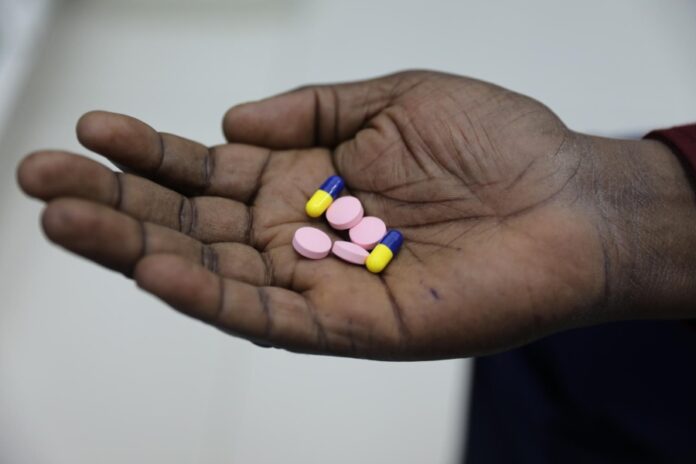A recent study by Martin et al. (2025) titled “Preferences for Delivery of HIV Prevention Services Among Healthcare Users in South Africa: A Discrete Choice Experiment,” published in AIDS and Behavior, reveals that healthcare users in South Africa strongly preferred decentralized and self-led HIV prevention services.
“
South Africans prefer decentralized, self-led HIV prevention services, emphasizing digital tools, convenience, and flexibility.
– Martin et al. 2025
This study explores healthcare users’ preferences for pre-exposure prophylaxis (PrEP) service delivery in South Africa, using a discrete choice experiment (DCE) to assess key components of the PrEP experience. Participants expressed strong support for decentralized, user-centered models of care. Specifically, they preferred receiving PrEP-related information through online platforms and social media (such as WhatsApp), initiating PrEP at accessible locations like pharmacies, mobile clinics, or pop-up sites, and collecting their medication from convenient community-based points such as vending machines or via home delivery. Users also favored self-testing for HIV over provider-administered tests, preferred less frequent follow-up appointments (every six months rather than every three), and valued digital communication between visits, including WhatsApp, Facebook groups, SMS, or phone calls. Overall, the findings highlight a clear demand for more flexible, self-led approaches to PrEP delivery, underscoring the need to tailor services to user preferences to enhance uptake and sustained adherence.
How the Study was Conducted
The authors conducted the research between November 2022 and February 2023 as a cross-sectional survey combined with a discrete choice experiment (DCE) to examine preferences for pre-exposure prophylaxis (PrEP) service delivery among HIV-negative individuals in South Africa. A total of 307 participants, aged 15 and older, were recruited from eight public primary care clinics across four geographical areas in three provinces—Eastern Cape, KwaZulu-Natal, and Gauteng. These sites were part of an ongoing initiative integrating PrEP into routine HIV prevention services.
The DCE was designed to capture user preferences for various aspects of PrEP service delivery. Attributes were selected through a rigorous process that included a literature review, workshops, and in-depth interviews with adolescent girls, young women, and healthcare providers, followed by iterative feedback from a multidisciplinary team of technical experts, program implementers, and young people. Six key service components were evaluated: Source of information (online, WhatsApp, printed materials), PrEP initiation site (clinic, pharmacy, mobile clinic, pop-up site), Follow-up frequency (every three months vs. every six months), Medication pick-up point (clinic, pharmacy, vending machine, home delivery), HIV testing method (self-testing vs. provider-administered testing), Communication between appointments (WhatsApp/Facebook groups, phone calls, SMS).
Participants were recruited through in-person outreach by fieldworkers who screened for eligibility and conducted interviews in English using a structured survey. The survey collected data on sociodemographic characteristics and sexual and reproductive health behaviors and included DCE decision-making tasks. Data were analyzed using generalized multinomial logistic models (G-MNL) to assess overall preferences, with subgroup analyses examining variations by gender, age, education, employment status, province, and prior PrEP use. Ethical approval was obtained from the University of the Witwatersrand and the World Health Organization’s Research Ethics Committee. Written informed consent was collected from all participants, who received ZAR100 (approximately $5.50 USD) as compensation for their time.
What the Authors Found
The study revealed a strong preference among healthcare users in South Africa for decentralized and self-led HIV prevention services, particularly in the delivery of pre-exposure prophylaxis (PrEP). Through a discrete choice experiment involving 307 HIV-negative individuals across primary care clinics in three provinces, key insights emerged on how users want PrEP services structured.
Why is this important
Improving Accessibility: Traditional clinic-based services often create barriers, such as long waiting times, inconvenient clinic hours, and transportation challenges. Decentralized options like pharmacies and home delivery increase convenience and reduce stigma.
Enhancing Uptake and Adherence: People are more likely to start and continue using PrEP when they can access it conveniently and on their terms. Offering preferred pick-up locations and reducing follow-up burdens can improve long-term engagement.
Supporting Public Health Goals: South Africa has a high burden of HIV, particularly among young people and key populations. Expanding self-testing and digital engagement can increase prevention efforts and lower new infections.
Policy and Program Design: Findings from this study can guide health policymakers and program implementers to design user-centered HIV prevention strategies. By aligning PrEP services with people’s preferences, uptake and impact can be maximized.
What the Authors Recommended
The authors recommended expanding decentralized and self-led HIV prevention services to better align with user preferences. Their key recommendations include:
- Leveraging Digital Health Tools—Providing PrEP information through online platforms and WhatsApp to improve accessibility and engagement.
- Flexible PrEP Initiation and Pick-Up—Offering pharmacy-based PrEP initiation, home delivery, and vending machine collection to reduce clinic dependency.
- Reducing Follow-Up Burden—Shifting to 6-Monthly Follow-Ups Instead of 3-Monthly Visits to Improve Adherence.
- Promoting HIV Self-Testing—Encouraging self-testing over provider-led testing to enhance privacy and convenience.
- Enhancing Communication Between Appointments— Using WhatsApp/Facebook groups, phone calls, and SMS to maintain engagement and support.
In conclusion, this study highlights the growing demand for flexible, user-driven HIV prevention services in South Africa, with a strong preference for decentralized care models that incorporate digital tools and convenient access points. By aligning PrEP delivery with the preferences of healthcare users, such as utilizing online platforms, offering pharmacy-based initiation, and promoting self-testing, healthcare systems can enhance uptake, improve adherence, and contribute to broader public health goals. Tailoring services to meet these needs is essential for advancing HIV prevention efforts and ensuring better health outcomes across the country.
















 The African Research (AR) Index is a comprehensive scholarly directory and database focused explicitly on journal publishers that publish and disseminate African research.
The African Research (AR) Index is a comprehensive scholarly directory and database focused explicitly on journal publishers that publish and disseminate African research.

